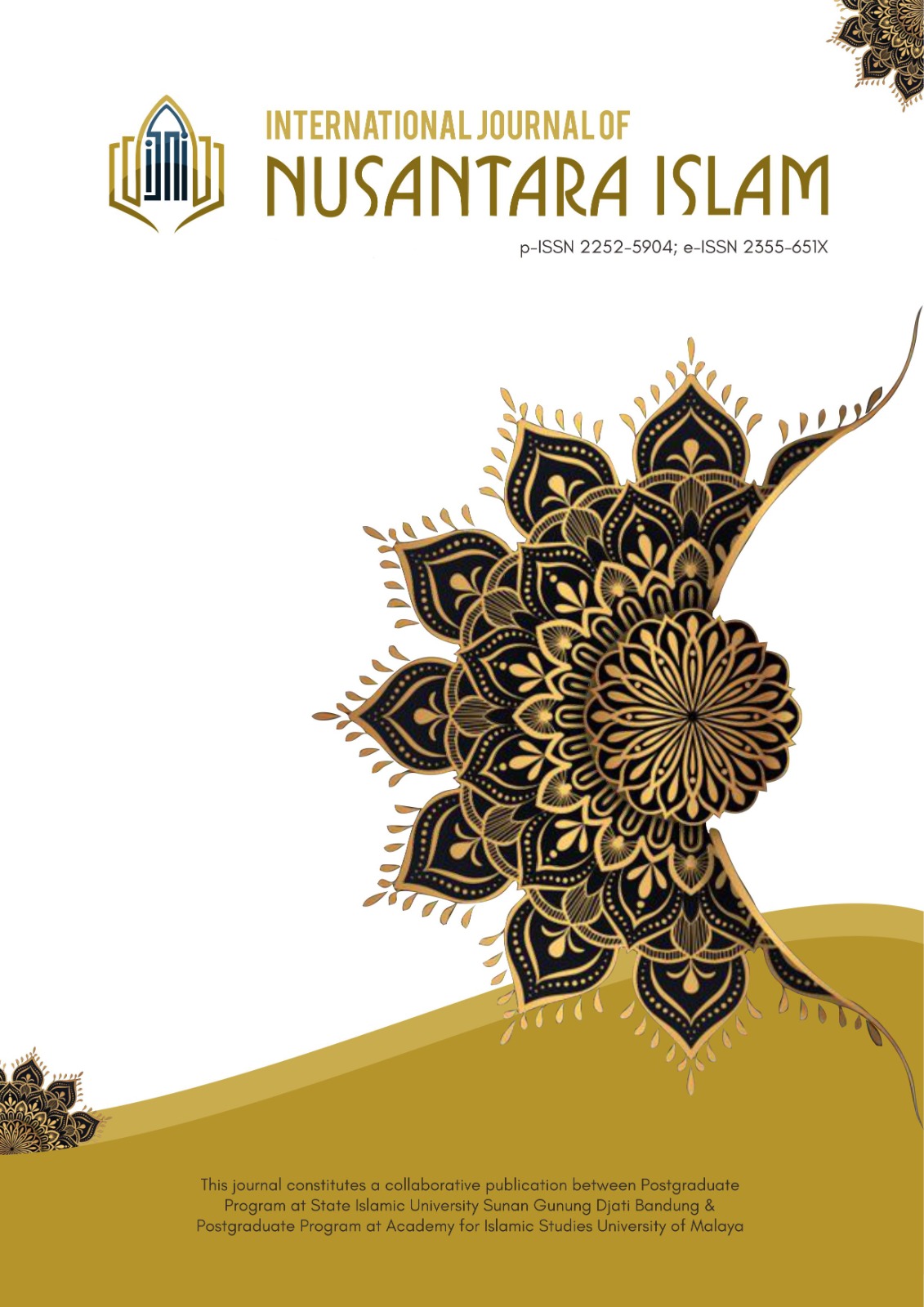Sufism as a Therapy in the Modern Life
Main Article Content
Abstract
Sufism or Taá¹£awwuf is an ancient fruit of Islamic civilization, but experienced revitalization in this modern era. His presence was increasingly meaningful when he was able to become an "oasis in the desert" for modern people who are experiencing a spiritual crisis. In the form of a particular tarekat (á¹arÄ«qah) or a modified form, Sufism has become a medicine for modernization with all its adverse effects. Sufism with spiritual teachings and noble character increasingly plays an important role. He who was once accused of the cause of Islamic decline, and negatively addressed by some Islamic experts, is now increasingly gaining a place in modern society. It is a solution that is anticipated for the problems of contemporary society. By using a literature study, this article was written to contribute to the phenomenon. Its findings, in addition to using scientific and technological instruments, modern life should also be accompanied by mental, spiritual instruments and morality, which are explained in Sufism.
Article Details
The Authors submitting a manuscript do so on the understanding that if accepted for publication, copyright of the article shall be assigned to International Journal of Nusantara Islam, Sunan Gunung Djati State Islamic University.
The copyright encompasses exclusive rights to reproduce and disseminate articles in all forms and media, including reprints, photographs, microfilm, and similar reproductions, as well as translations. Some or all of the contents of this journal can be stored in databases and transmitted in any form and media without the need for written permission from the International Journal of Nusantara Islam, Sunan Gunung Djati State Islamic University.
The Editors and the Advisory International Editorial Board make every effort to ensure that no wrong or misleading data, opinions or statements be published in the journal. In any way, the contents of the articles and advertisements published in the International Journal of Nusantara Islam (IJNI) are sole and exclusive responsibility of their respective authors and advertisers.
References
ad Daduh, S. N. (2002). Bebas dari Jerat Dunia | Library UIN Sunan Ampel. Bandung: Pustaka Hidayah.
Ali-Shah, O. (2002). Tasawuf Sebagai Terapi. Bandung: Pustaka Hidayah.
An-Najar, A. (2004). Psikoterapi Sufistik dalam Kehidupan Modern (I. Suntana, Trans.). Bandung: Mizan Publika.
As-Sya’rani, S. A. W. (1997). MENJADI KEKASIH TUHAN (A. K. Soleh, Trans.). Yogyakarta: Mitra Pustaka.
Burke, J., Asimov, I., & Bergman, J. (2012). The Impact of Science on Society. Scotts Valley: Create Space Independent Publishing Platform.
Danner, V. (2005). The Islamic Tradition: An Introduction. Scottsdale: Sophia Perennis.
Frager, R. (2013). Heart, Self, & Soul: The Sufi Psychology of Growth, Balance, and Harmony. Wheaton: Quest Books.
Galipeau, S. A. (2011). Transforming Body & Soul: Therapeutic Wisdom in the Gospel Healing Stories. Carmel: Fisher King Press.
Grey, R. (2010). Bereavement, Loss and Learning Disabilities: A Guide for Professionals and Carers. London - Philadelphia: Jessica Kingsley Publishers.
Haddock, G., & Maio, G. R. (2012). Attitudes. In M. Hewstone, W. Stroebe, & K. Jonas (Eds.), An Introduction to Social Psychology. Glasgow: John Wiley & Sons.
Johnson, E. C. (1983). In search of God in the sexual underworld: a mystical journey. Morrow.
Lewisohn, L. (1999). The Heritage of Sufism: The legacy of medieval Persian Sufism (1150-1500). London: Oneworld.
Muhaimin, A. G. (2006). The Islamic Traditions of Cirebon: Ibadat and Adat Among Javanese Muslims. Canberra: ANU E Press.
Nasr, S. H. (1991). Sufi Essays. New York: SUNY Press.
Nata, A. (2012). Akhlak Tasawuf. Jakarta: Raja Grafindo.
Ngafifi, M. (2014). KEMAJUAN TEKNOLOGI DAN POLA HIDUP MANUSIA DALAM PERSPEKTIF SOSIAL BUDAYA. Pembangunan Pendidikan: Fondasi Dan Aplikasi, 2(1), 33–47. https://doi.org/10.21831/jppfa.v2i1.2616
Phelps, K., & Hassed, C. (2012). Joints and Connective Tissues: General Practice: The Integrative Approach Series. Chatswood: Elsevier Health Sciences.
Rahman, A. T. A. (2010). Khalwah: A Solitary Sufi Retreat. Sabah: Universiti Malaysia Sabah.
Rahman, F. (2014). Spiritual Healing and Sufi Practices. Nova Journal of Sufism and Spirituality, 2(1), 1–9.
Ridgeon, L. (2015). The Cambridge Companion to Sufism. New York: Cambridge University Press.
Sabry, W. M., & Vohra, A. (2013). Role of Islam in the management of Psychiatric disorders. Indian Journal of Psychiatry, 55(Suppl 2), S205–S214. https://doi.org/10.4103/0019-5545.105534
Shaikh, S. (2012). Sufi Narratives of Intimacy: Ibn ’Arabī, Gender, and Sexuality. Chapel Hill: Univ of North Carolina Press.
Sholeh, M. (2005). Agama Sebagai Terapi. Yogyakarta: Pustaka Pelajar.
Siegel, L. J., & Welsh, B. C. (2017). Juvenile Delinquency: Theory, Practice, and Law. Boston: Cengage Learning.
Siroj, S. A. (2006). Tasawuf Sebagai Kritik Sosial: Mengedepankan Islam Sebagai Inspirasi, Bukan Aspirasi. Bandung: Mizan Pustaka.
Sorgenfrei, S. (2018). Hidden or Forbidden, Elected or Rejected: Sufism as ‘Islamic Esotericism’? Islam and Christian–Muslim Relations, 29(2), 145–165. https://doi.org/10.1080/09596410.2018.1437945
Stanfield, J. (2008). Modernity, a World of Confusion:Causes. n.p.: Xlibris Corporation.
Suyuti, A. (2002). Percik-Percik Kesufian. Bandung: Pustaka Hidayah.
Syukur, M. A. (2003). Tasawuf Kontekstual Solusi Problem Manusia Modern. Yogyakarta: Pustaka Pelajar.

